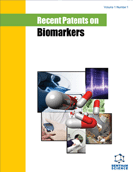Abstract
Aspirin therapy is the cornerstone of therapy and is considered as the “gold standard” antiplatelet agent for primary and secondary prevention of cardiovascular events. Aspirin inhibits the COX-1 enzyme and therefore blocks platelet thromboxane A2 synthesis. Several recent studies have suggested that some patients may not get the full benefits of aspirin therapy. These findings raise the question that some patients may be resistant to aspirin's antiplatelet effects. There is no universally accepted definition of aspirin resistance (AR). The exact mechanisms leading to AR are not very well understood but are likely multi-factorial. Several point-of-care assays of platelet function have been developed in recent years to rapidly screen individuals on aspirin as anti-platelet therapy. The ideal test would be capable of distinguishing individuals at risk of ischemic and bleeding events and could be used to guide dose adjustments in therapy. Utility of currently available tests in identifying aspirin-resistant patients remains to be determined. No data exist to guide aspirin therapy on the basis of platelet function test results. This article includes what AR means, the mechanisms, and clinical relevance of AR including platelet activity, methods to identify aspirin resistance, management of AR and relevant patents.
Keywords: Aggregometry, aspirin resistance, cyclooxygenase 1, 11-dehydrothromboxane B2, mean platelet volume, PlA polymorphism, P-selectin, UDP-glucuronosyl transferase, COX-1, CYP450 system
 79
79

